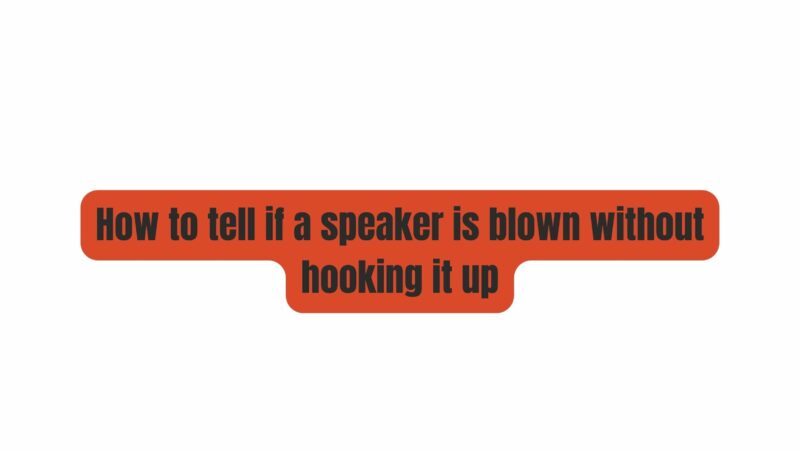Speakers can be damaged or blown over time, and there are a few ways to tell if a speaker is blown without hooking it up.
1. Look for physical damage.
The most obvious sign that a speaker is blown is if there is physical damage to the speaker cone. If the cone is torn, cracked, or otherwise damaged, it will not be able to vibrate properly and will produce no sound.
2. Listen for a rattling noise.
Another sign that a speaker is blown is if you hear a rattling noise when you tap on it. This noise is caused by the speaker cone rubbing against the speaker frame.
3. Test the speaker with a multimeter.
If you have a multimeter, you can use it to test the resistance of the speaker. If the resistance is very low or infinite, the speaker is blown.
4. Look for signs of overheating.
If the speaker has been overdriven, it may overheat. This can cause the speaker cone to warp or melt, which will damage the speaker.
5. Check the speaker’s warranty.
If your speaker is still under warranty, you may be able to get it replaced for free.
If you notice any of these signs, it is best to replace the speaker. Continuing to use a blown speaker can damage other components in your sound system.
Here are some additional tips to help you prevent your speakers from becoming blown:
- Buy high-quality speakers: Speakers that are made with high-quality materials are less likely to be blown.
- Avoid overdriving your speakers: Make sure that you are not sending more power to your speakers than they can handle.
- Be careful with your speakers: Avoid dropping or knocking them over.
- Keep your speakers clean: Dust and dirt can build up on the cones and other components of the speakers and make them less able to move freely. To clean your speakers, use a soft cloth and a mild cleaning solution.
- Store your speakers properly: When you are not using your speakers, store them in a cool, dry place.
By following these tips, you can help to extend the lifespan of your speakers and prevent them from becoming blown.


